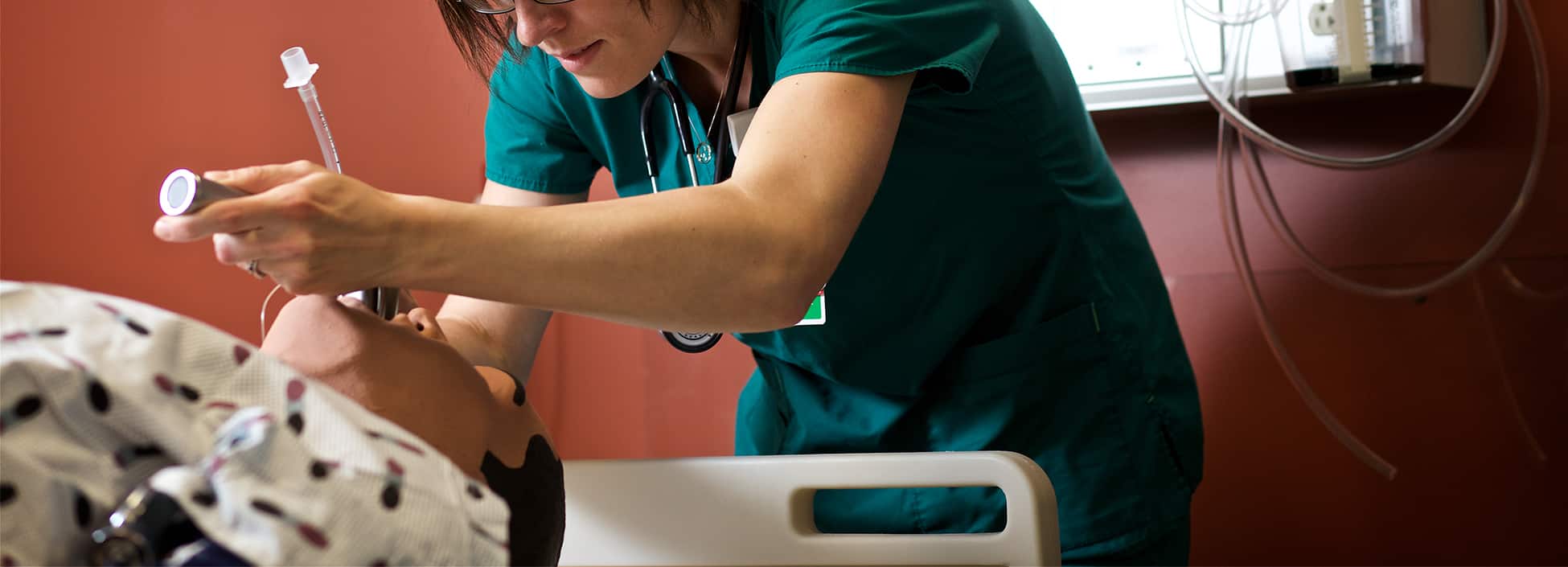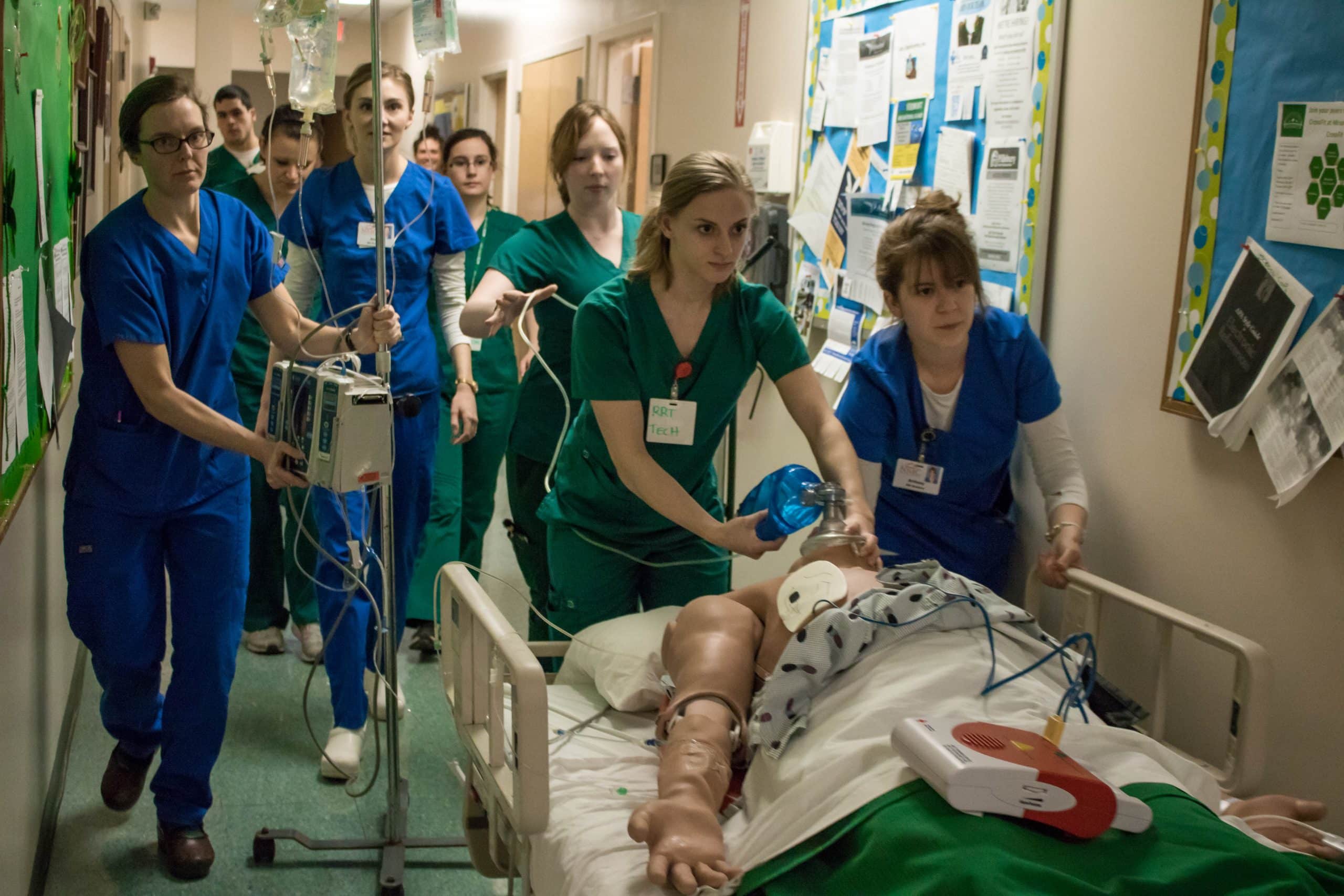

Vermont Technical College will join with Castleton University and Northern Vermont University to become Vermont State University on July 1, 2023. Learn more and apply for fall 2023.
Mission
To provide participant-centered high-quality simulation experiences that contribute to professional expertise and lifelong learning. We strive to make Simulation services accessible to all allied health participants at our geographically dispersed locations.
Launch 2021 Simulation Lab (Gifford Hospital/Randolph)
Vision & Core Values
Striving to meet the International Nursing Association for Clinical Simulation and Learning (INACSL) guidelines, the multidisciplinary labs will provide high-quality state-of-the-art simulation experiences that will promote collaborative inter-professional learning that contributes to professional development. It supports and enhances statewide healthcare education and will improve patient care and safety across healthcare.
- The simulation program believes that all participants are valuable members of the healthcare team. They will be treated with dignity and respect.
- Simulation experiences should be of high quality and evidenced based while keeping activities participant-centered.
- The simulation environment will be a safe, supportive environment lending to participant participation, reflection, and personal growth.
- Simulation experiences will be facilitated by qualified, dedicated faculty and staff.
- Simulation is used to teach, enhance, reinforce, and apply theory in a clinical setting.
- Simulation experiences have the same expectations and requirements as for all clinical experiences including attendance, preparation and learning outcomes.
- Simulation provides a venue to enhance interprofessional collaboration as it supports participants as they develop in their healthcare roles.
- High-quality debriefing is a responsibility of the simulation program. Good debriefing guides participant self-reflection leading to their personal and professional growth.
- Simulation contributes to the development of participant professional expertise in the areas of problem solving, communication, teamwork and clinical decision making.
The benefits of simulation include:
- Enrichment and enhancement of course content
- Ability to creating practice experiences not readily available in the clinical setting
- Emphasize patient safety
- Build effective communication skills with patients and families
- Providing a safe place that allows participants to make mistakes and learn from their mistakes while not jeopardizing patient safety
- Builds self-confidence
- Reinforces application of theory into practice in an efficient and focused manner
- Encourages reflective thinking by participants in the debriefing process
- Provides “realistic” role playing
- Enhances professional communication and health care team synergy
- Promotes learning through collaboration
- Alignment with the INACSL standards will allow Vermont Technical College to advance to the cutting edge of simulation education
Additional Resources

Simulation Program Director
We’d be happy to schedule a tour of our facilities or a meeting to discuss your educational needs and how our services can help to address them.
Michelle Stearns, DNP, MSN, RN
Simulation Program Director for Nursing and Allied Health Programs
SimProgram@vtc.edu
(802) 879-5967
